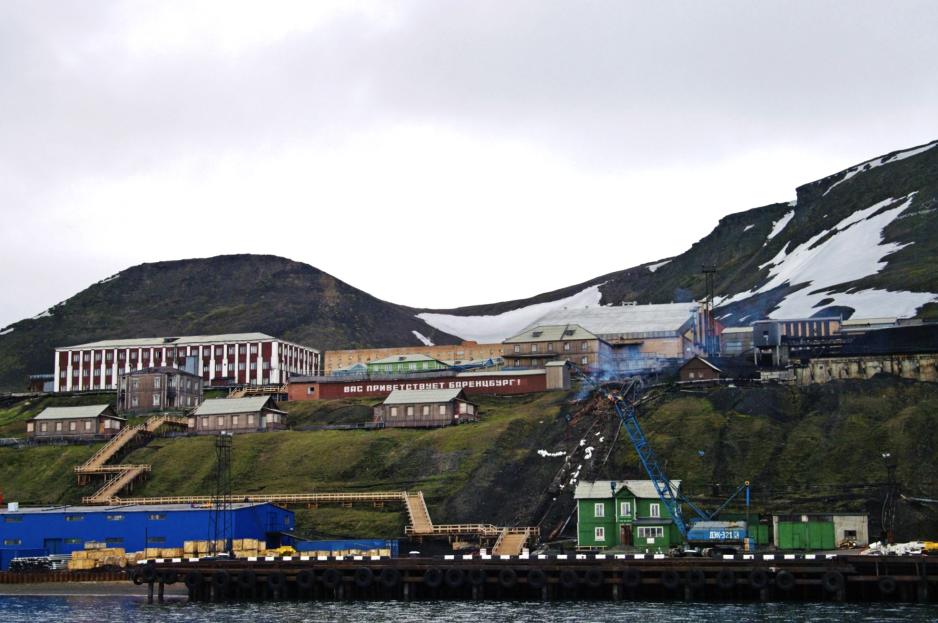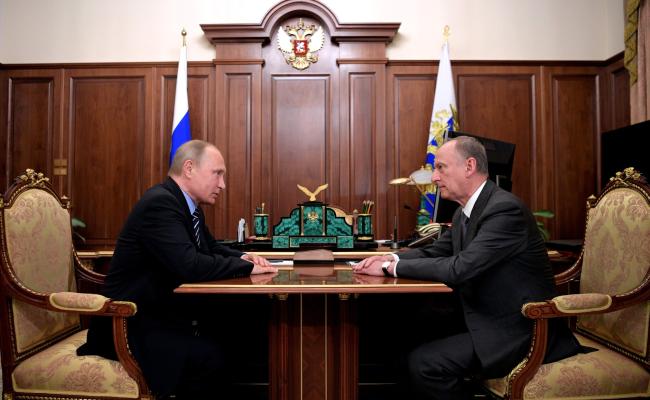Chinese and Turkish Polar Researchers Explore Cooperation With Russia in Svalbard

Russia wants Arctic research cooperation with BRICS countries and other "friendly" states in Svalbard. They are invited to collaborate at the existing research center in the Russian mining town Barentsburg (pictured) and particularly to participate in the establishment of a new research station in the former mining town Pyramiden. The idea is for the latter to also include educational activities. (Photo: Harald Faste Aas/the Norwegian Polar Institute)
Last week, a Chinese research delegation visited Russia's science center in Barentsburg to discuss expanded cooperation in the Arctic. The parties agreed to start preparations for joint research projects. In July, Turkish polar researchers visited Pyramiden to gain closer insights into Russian plans for an international Arctic science station.
On Tuesday last week, a delegation from China's leading scientific polar institutions visited the Russian science center in Barentsburg, Svalbard, reports the Russian Arctic and Antarctic Research Institute (AARI).
More specifically, the AARI Director, Aleksandr Makarov, and researchers at the center welcomed representatives from the Chinese Arctic and Antarctic Administration (CAA) and the Polar Research Institute of China (PRIC).
The agenda for the visit included the discussion of expanded Russian-Chinese research cooperation in the Arctic. The parties agreed to start preparations for joint research projects in the region, with follow-up meetings in the fall, according to AARI.
The basis is mutual invitations: Chinese researchers were invited to participate in the work of the Russian Arctic scientific expedition on Spitsbergen (RAE-SP), which operates the mentioned science center, as well as to conduct studies aboard the drifting ice station North Pole.
Russian researchers were invited to participate in an expedition on PRIC's icebreaking research vessel Xue Long 2.
"We have joint interests and ways to develop cooperation further. We should design a system where Russian and Chinese researchers can visit scientific stations of our countries," says Tiejun Ling, CAA vice director.
Existing Chinese research on Svalbard
• The Polar Research Institute of China has a research station in Ny-Ålesund in Svalbard called Yellow River Station.
• It opened in 20014 within the framework of the Norwegian Ny-Ålesund research station, which facilitates international natural science cooperation.
• Research institutions from about 20 countries conduct projects annually at Ny-Ålesund research station, which is led by the Norwegian Polar Institute. The Norwegian state-owned company Kings Bay owns the property and most buildings.
• Chinese research projects in Ny-Ålesund are organized by the Chinese Arctic and Antarctic Administration (CAA).
• The CCA says that it focuses on studies within atmospheric physics, glaciology, terrestrial ecology, and marine ecology to contribute to understanding climate and environmental changes in the Arctic.
Visit from Turkey
About a month ago, Trust Arktikugol, Russia's company on Svalbard, welcomed the Turkish Arctic Scientific Expedition (TASE) to Pyramiden.
The project was launched in the spring of 2023, and TASE expressed an interest in it as the team visited Barentsburg and Pyramiden last summer.
During this year's visit, the Turkish polar researchers gained closer insights into Trust Arktikugol's plans for the science station and restoration of Pyramiden, which will also be further developed as a tourist destination.
"TASE participants and Arktikugol aim to keep in touch in several areas after the visit," writes the company on its website.
Underway
In addition to Turkey, the Trust Arktikugol director has stated that China, India, Brazil and Thailand also have expressed interest in participating in the planned science station. This was reported by TASS at the end of last year.
According to the company, the station will be established as a consortium of research and educational institutions and other relevant organizations from the participating countries. The project is intended to include both a research complex and an education centre.
Trust Arktikugol has entered cooperation agreements with three Russian universities to set the project to life.
Another agreement followed in December 2023 with the Russian State University for the Humanities (RSUH) in Moscow. This includes i.a. that Trust Arktikugol will be a partner for a new bachelor program in Arctic studies at the university.
Just after New Year, Trust Arktikugol landed a cooperation with the Moscow State Institute of International Relations (MGIMO), which is among Russia's leading universities. The agreement facilitates scientific support to the company's projects and cooperation on training personnel in fields such as international trade, logistics, environmental and climate security, sustainable development, and ESG (Environmental, Social and Governance).
Svalbard white paper measures
In May, the Norwegian government presented a new Svalbard white paper, which at least partly limits the possibilities of realizing Trust Arktikugol's concept for a scientific and educational center in Pyramiden.
Firstly, the Norwegian government wants the University Centre in Svalbard (UNIS) to be the sole provider of higher education in Svalbard.
With reference to environmental concerns, the government will also continue a principle from the previous white paper, which states that research should mainly take place in established local communities and research stations.
"One cannot expect permits to create new research stations or other major, permanent research infrastructure outside the planning areas, says the Svalbard white paper.
Stronger Norwegian research leadership
The government will also strengthen the Norwegian research leadership in Svalbard by establishing a Svalbard Research Office, which will be run by the Research Council of Norway and the Norwegian Polar Institute.
"While this will contribute to further support for actors interested in researching in Svalbard, it will also strengthen national control of research activity," states the government in the white paper.
The office will follow up on the Svalbard research strategy, be a clear point of contact for foreign research environments, and prepare an annual report on all research activity in Svalbard.






